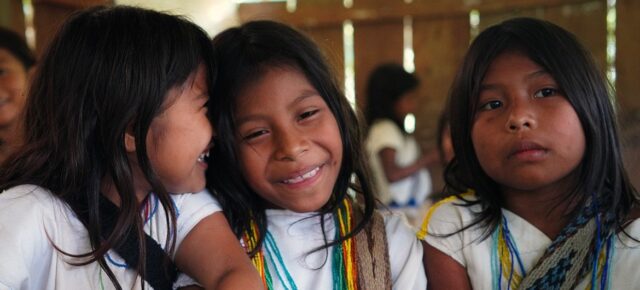As a result of a historic agreement, Canada agreed to pay compensation of almost three billion Canadian dollars to indigenous peoples, in order to “repair the damage” suffered for a century by thousands of children forced into religious residential schools.
Justin Trudeau’s government announced this past Saturday an agreement with 325 indigenous communities to compensate them with up to C$2.8 billion (about US$2.1 billion) for abuses suffered between the late 19th century and the 1990s.
Repairing the collective damage
“Canada is committed to repairing the collective damage caused by the residential school system and the loss of language, culture and heritage,” according to an official statement.
For nearly a century, the Canadian government sent some 150,000 children to 139 residential schools, mostly run by the Catholic Church, where they were cut off from their families, their language, and their culture.
Many suffered physical and sexual abuse, and thousands are believed to have died from disease, malnutrition, or neglect. It was not until recent years that investigations were carried out to shed light on the tragic colonial past of this former territory of the British Empire.
“Healing process”
The record sum announced, to be placed in a non-profit trust independent from the government, will be used to “revitalize indigenous education, culture and language, to help survivors heal and reconnect with their inheritance,” according to the official statement.
For nearly two years now, this grim past has been resurfaced by the discovery of Aboriginal children’s graves near institutions where the children were forcibly recruited. More than 1,300 graves have already been identified, the most recent ten days ago.
In Lebret, in the province of Saskatchewan, radar has uncovered nearly “2,000 suspicious areas” that will be the subject of an in-depth search, the Cree Star Blanket Nation announced on January 12. A fragment of a child’s jawbone dating to about 125 years has already been identified in this western Canadian community.
“It has taken Canada too long to acknowledge its history, to acknowledge the genocide it committed and to acknowledge the collective harm done to our nations by residential schools,” said Garry Feschuk, an indigenous leader who is one of the plaintiffs. “It is time for Canada not only to recognize this damage, but to help undo it (…). This agreement is a good first step,” he said in the statement published.
“The repercussions are beyond my generation. It will take many generations to heal,” said Shane Gottfriedson, a former leader of the Tk’emlúps te Secwépemc community and also a promoter of the resource.

‘Cultural genocide’
“All survivors deserve justice and the compensation they are owed,” said Marc Miller, federal minister of Indian Relations in the press release. The precise terms for the disbursement of these 2.8 billion Canadian dollars will be decided by the federal courts on February 27. It is already set that C$200,000 (approximately US$150,000) will be paid to each party in the class action.
“This agreement is intended to take steps to repair the damage that has been done to our nations,” Gottfriedson insisted, stressing “the devastating effects of residential schools” on all Canadian aboriginal peoples. A national commission of inquiry in 2015 called the residential school system a “cultural genocide.”
On a visit to Canada last July, Pope Francis asked for “pardon for the evil” inflicted for decades in boarding schools for indigenous children, saying he was “afflicted” by these practices, encouraged by the doctrines of the Catholic Church at the time.


waste of money
Maybe if its invested in “collective” improvements like schools and health services, it will not be wasted